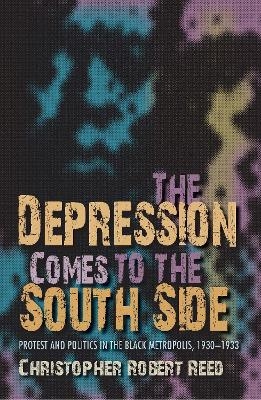
The Depression Comes to the South Side
Protest and Politics in the Black Metropolis, 1930-1933
Seiten
2011
Indiana University Press (Verlag)
978-0-253-35652-9 (ISBN)
Indiana University Press (Verlag)
978-0-253-35652-9 (ISBN)
- Lieferbar (Termin unbekannt)
- Versandkostenfrei
- Auch auf Rechnung
- Artikel merken
Explores early Depression-era politics on Chicago's South Side
In the 1920s, the South Side was looked on as the new Black Metropolis, but by the turn of the decade that vision was already in decline—a victim of the Depression. In this timely book, Christopher Robert Reed explores early Depression-era politics on Chicago's South Side. The economic crisis caused diverse responses from groups in the black community, distinguished by their political ideologies and stated goals. Some favored government intervention, others reform of social services. Some found expression in mass street demonstrations, militant advocacy of expanded civil rights, or revolutionary calls for a complete overhaul of the capitalist economic system. Reed examines the complex interactions among these various groups as they played out within the community as it sought to find common ground to address the economic stresses that threatened to tear the Black Metropolis apart.
In the 1920s, the South Side was looked on as the new Black Metropolis, but by the turn of the decade that vision was already in decline—a victim of the Depression. In this timely book, Christopher Robert Reed explores early Depression-era politics on Chicago's South Side. The economic crisis caused diverse responses from groups in the black community, distinguished by their political ideologies and stated goals. Some favored government intervention, others reform of social services. Some found expression in mass street demonstrations, militant advocacy of expanded civil rights, or revolutionary calls for a complete overhaul of the capitalist economic system. Reed examines the complex interactions among these various groups as they played out within the community as it sought to find common ground to address the economic stresses that threatened to tear the Black Metropolis apart.
Christopher Robert Reed is Professor Emeritus of History at Roosevelt University in Chicago and author of The Emergence of the Black Metropolis, 1910–1933; Black Chicago's First Century, 1833–1900; All the World Is Here: The Black Presence at White City (IUP, 2000); and The Chicago NAACP and the Rise of Black Professional Leadership (IUP, 1997).
Acknowledgments
Introduction
1. The Impact of the Great Depression
2. The Ineffectiveness of Conventional Politics
3. Protest Activism in the Streets
4. Protest Activism Across the Spectrum: Militant to Radical
5. Organized Non-economic Civil Rights Activities
6. Cultural Stirrings and Conclusion
Bibliography
Index
| Zusatzinfo | 8 b&w illus. |
|---|---|
| Verlagsort | Bloomington, IN |
| Sprache | englisch |
| Maße | 152 x 229 mm |
| Gewicht | 454 g |
| Themenwelt | Geschichte ► Allgemeine Geschichte ► Neuzeit (bis 1918) |
| Geschichte ► Allgemeine Geschichte ► 1918 bis 1945 | |
| Geisteswissenschaften ► Geschichte ► Regional- / Ländergeschichte | |
| Sozialwissenschaften ► Ethnologie | |
| Sozialwissenschaften ► Politik / Verwaltung ► Politische Theorie | |
| Sozialwissenschaften ► Soziologie | |
| ISBN-10 | 0-253-35652-0 / 0253356520 |
| ISBN-13 | 978-0-253-35652-9 / 9780253356529 |
| Zustand | Neuware |
| Haben Sie eine Frage zum Produkt? |
Mehr entdecken
aus dem Bereich
aus dem Bereich
Europa 1848/49 und der Kampf für eine neue Welt
Buch | Hardcover (2023)
DVA (Verlag)
CHF 67,20
Giordano Bruno - ein ketzerisches Leben
Buch | Hardcover (2024)
C.H.Beck (Verlag)
CHF 41,85


